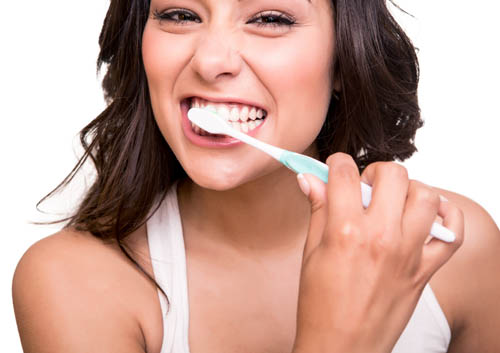Top Five Best Foods for Oral Health
December 6th, 2018

Some foods are just terrible for your teeth — think cookies and candy bars — but there are certain foods that are beneficial to your oral health. Below, Dr. Robert Wortzel and our team have covered five of the top foods to keep your teeth and gums healthy!
1. Crispy, low-acid fruits and vegetables: Fruits like apples and vegetables such as carrots and celery act like “natural toothbrushes,” helping to clear plaque from your teeth and freshen your breath.
2. Kiwis: These little green superstars are packed with vitamin C which is essential for gum health. The collagen in your gums is strengthened when you consume foods that are high in vitamin C, like kiwis, thus helping to prevent periodontal problems.
3. Raw onions: Onions have long been studied for their antimicrobial, antibacterial, and antioxidant properties. Proliferation of bacteria is what leads to tooth decay and cavities. By including raw onions in your diet, you'll be doing your part to wipe out those little microbes before they can multiply!
4. Shiitake Mushrooms: A specific compound in shiitake mushrooms, lentinan, has been shown to have antibacterial properties that target the microbes that cause cavities while leaving other beneficial bacteria alone. It may also help prevent gingivitis, or inflammation of the gums.
5. Green Tea: Often lauded for its high antioxidant content and many health benefits, it turns out green tea also benefits your oral health! A Japanese study found men who drank green tea on a regular basis had a lower occurrence of periodontal disease compared to men who drank green tea infrequently. It's believed this is due to the catechins in green tea, a type of flavonoid that may help protect you from free radical damage, but more research needs to be done. Either way, drink up for your overall health, as well as your teeth!
If you have any questions about your oral health, or are looking for even more oral health tips, contact our Mountainside, NJ office!



